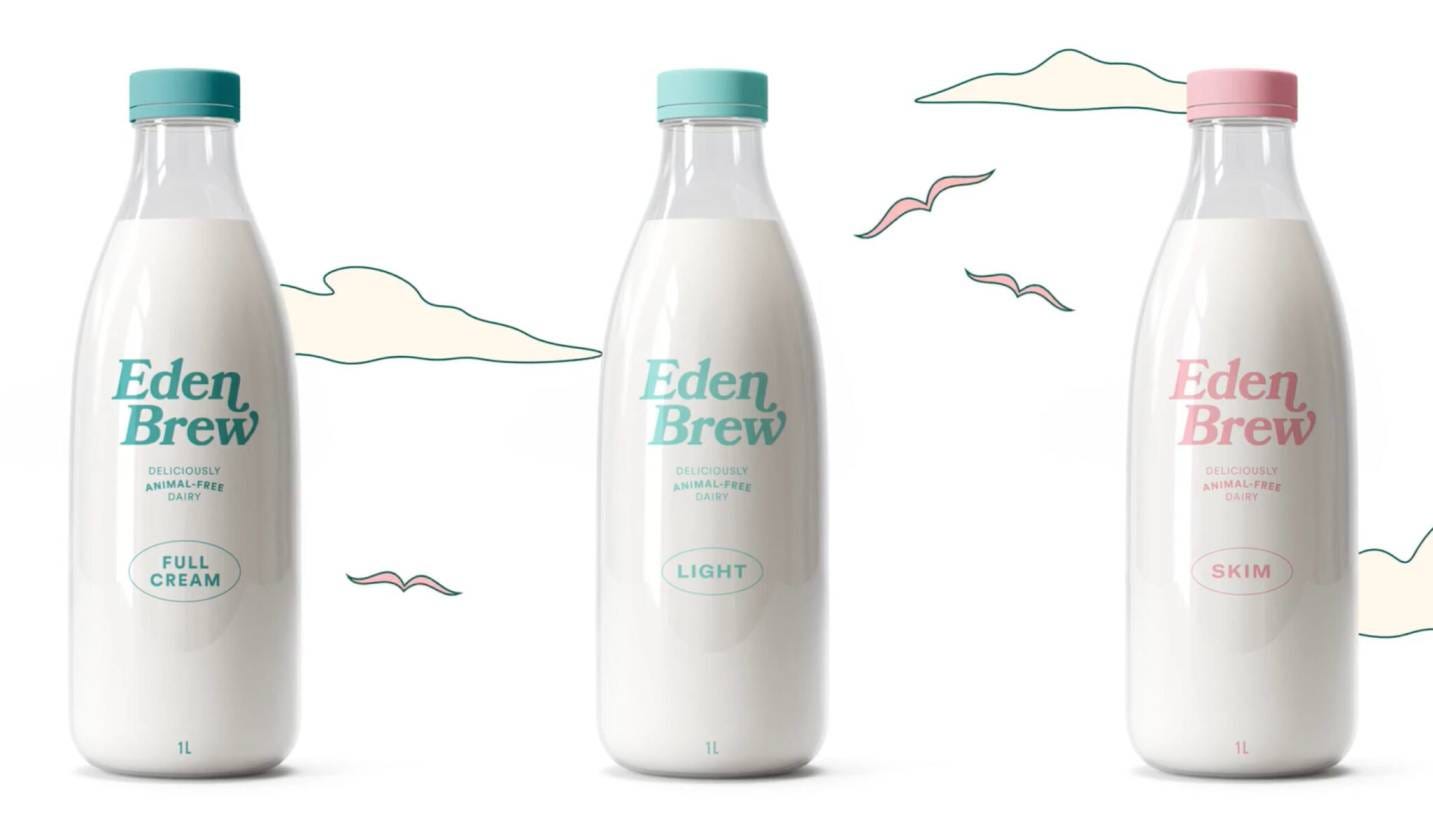UK to Speed Up Cultivated Meat Approval, Cell Cultivated Berries, and Big Dairy and Meat Is “Woke”
Also: How to value your pre-revenue food tech company
BIO BUZZ
🐟 BlueNalu has extended partnerships with three seafood industry leaders in APAC to introduce cultivated bluefin tuna in Asia
The three leaders are Japan’s Mitsubishi Corporation, South Korea’s Pulmuone, and Thai Union. The collaborations aim to support BlueNalu in launching sustainable cultivated bluefin tuna in the APAC region, with a focus on market research, regulatory approval, and supply chain strategies.
The US-based company's goal is to provide healthy and trusted seafood options that align with evolving market conditions and address the growing seafood consumption in Asia.
Asia consumes 80% of the estimated global supply of bluefin tuna. These fish populations have drastically declined due to overfishing and illegal and unreported fishing, making sustainable seafood solutions vital.
Read full article - vegconomist
🇨🇴 Colombia’s largest CPG food company is partnering with The EVERY Company to reshape the alternative meat sector
US-based EVERY has developed EVERY EggWhite, a hyper-functional binding protein that outperforms conventional eggs, offering a potential solution for egg white replacement in alternative meat production.
The largest CPG food company in Colombia, Grupo Nutresa, has been included in the Dow Jones Sustainability Indices (DJSI) 2022 for the thirteenth year running. It’s well-positioned to take the lead in the development of environmentally friendly substitute meat products.
The collaboration aims to incorporate EVERY EggWhiteTM into Nutresa's alternative meat product line, enhancing binding and gelation properties while mimicking natural analogs without animal-derived ingredients or processed binding agents.
Read full article - vegconomist
🤝 SeaWith and ORF Genetics are collaborating to speed up the production of cultivated meat using plant-based growth factors
The partnership aims to provide SeaWith with a stable supply of ORF Genetics's animal-free growth factors, which will help in developing sustainable meat at lower production costs. It also includes plans for joint R&D initiatives related to growth factors for cultivated meat production.
South Korea-based SeaWith plans to scale its cultivated meat platform and launch Han-Woo cultivated beef products under the "Welldone" brand in the market by 2025.
Icelandic firm ORF Genetics produces animal-free growth factors using molecular farming, with their latest development being MESOkine, derived from barley seeds. The company’s MESOkine brand partners include Aleph Farms, Mosa Meat, and Vow.
Read full article - vegconomist
🍄 Nosh.bio has partnered with Ginkgo Bioworks to find protein-producing fungi strains for a single-ingredient meat alternative
The partnership aims to create flavorful and naturally meaty plant-based meat products that are less processed and more affordable, addressing consumer preferences for taste, texture, and clean labels.
German-based Nosh.bio uses fungal biomass to develop cost-effective and efficient mycoprotein-derived meat alternatives, with a focus on recreating challenging products like steak.
Ginkgo Bioworks will leverage its screening technology to discover fungi strains with higher native proteins to enhance the qualities of Nosh.bio's plant-based meat products.
Read full article - Green Queen
🧪 Novozymes has introduced Vertera ProBite, a natural enzyme that enhances the texture of plant-based meat while reducing ingredient lists

Vertera ProBite addresses key consumer concerns about plant-based meat, including texture, taste, and label transparency.
The product allows manufacturers to create plant-based meat products with improved texture and consumer-friendly labels without compromising sustainability or nutrition.
Vertera ProBite is a liquid product, making it easy to handle in food production and eliminating potential consumer confusion about labelling.
Read full article - Food Ingredients First
🇳🇱 Vivici has successfully scaled its platform to produce animal-free beta-lactoglobulin, a major whey protein in milk
The Dutch precision fermentation startup plans to introduce its flagship product in early 2024 and will supply sustainable whey ingredients to leading F&B brands as a B2B company.
Beta-lactoglobulin is a versatile ingredient. It offers superior nutrition compared to most proteins, with gelling, foaming, and emulsification properties that enhance the mouthfeel and texture of foods and beverages.
Founded in 2022 by DSM and Fonterra, Vivici claims to be an expert in dairy protein isolation and application, with plans for further scaling and development.
Read full article - vegconomist
🍄 Meati has obtained a patent for its MushroomRoot™ ingredient as a study discovers potential health benefits
Meati conducted an AI-led study using PIPA's LEAP tool, revealing that MushroomRoot contains rare compounds with potential health benefits and can address prevalent nutritional deficiencies.
PIPA's Data Analytics Platform integrates diverse data sources and uses AI pipelines to accelerate research, significantly reducing costs and time in scientific investigations.
The study identified 14 key compounds in MushroomRoot that can help improve nutrition and health, with a focus on addressing cardiovascular health, a critical concern in the US. Details of rare compounds remain undisclosed pending further research.
Read full article - Green Queen
🫐 Novella debuts line of whole-cell cultivated berry phytonutrients with a novel approach to cultivating berry-derived bioactives
The Israeli startup uses precision-controlled-environment technology to grow intact-cell berry compounds outside of plants. The platform aims to ease bottlenecks in the supply chain of highly in-demand berry ingredients and reduce carbon emissions and plant waste.
To accelerate the cultivation of whole-berry fruit cells from five varieties, Novella has established a new facility for cultivating whole-berry fruit cells from various varieties to meet specific supplement market demands.
Instead of extracting the compounds, the company examines the tissues of the plant to identify regions with the highest concentration. The chosen cells are then grown in a closed, controlled environment that stimulates natural propagation.
Read full article - Nutritional Outlook
👀 NotCo has been recognised as one of the “15 Climate Tech Companies to Watch 2023” by MIT Technology Review
A unicorn company and B-corp, NotCo utilises AI and cutting-edge technology to create plant-based products that mimic the taste and texture of animal products.
The company holds 12 US patents for its proprietary AI technology, Giuseppe, which accurately identifies plant ingredients for their alternatives.
NotCo is growing rapidly in Latin America (NotCo is the fastest-growing food tech company in the region) and the US, supplying plant-based products to various retailers and expanding its presence in both regions.
Read full article - vegconomist
MACRO STUFF
🇬🇧 The UK plans to speed up the approval of cultivated meat through a bilateral agreement with Israel to boost food security and sustainability
Israel is a leader in the cultivated meat sector, with numerous companies and significant investments. The UK aims to collaborate with Israel to boost food security and provide sustainable meat sources amid rising costs.
The UK currently follows EU regulations for cultivated meat, where it's considered a "novel food" requiring premarket authorization from the Food Standards Agency (FSA).
Despite consumer awareness, many Brits are still cautious about consuming cultivated meat. However, consumers could be persuaded if assured of safety and if they knew the products are properly regulated.
Read full article - Green Queen
📉 Americans need to reduce their meat intake by 82% to avoid future climate disasters
New York City is facing a state of emergency due to climate-related extreme weather events, signalling a "new normal" attributed to the climate crisis.
Meat consumption in the US is excessive, with Americans consuming nearly three times the recommended amount, contributing significantly to climate change.
Policy recommendations include redirecting subsidies to plant-based innovation, implementing a meat tax, changing Dietary Guidelines, and promoting cooperation among stakeholders and companies to encourage dietary change and sustainability goals.
Read full article - Green Queen
🐶 If all dogs and cats went vegan, we could feed 520 million people
Transitioning all dogs to a nutritionally complete vegan diet could help feed around 450 million people, while doing the same for cats could help almost 70 million people.
The research also indicates that if humans shifted to a plant-based diet, it could potentially feed 5.3 billion people, significantly reduce greenhouse gas emissions, and save land and water resources.
Pet food has a substantial environmental impact, with vegan pet food offering potential benefits for the environment and animal health, though the study suggests these estimates may be conservative.
Read full article - Green Queen
💡 The future of precision fermentation in alternative proteins
Precision fermentation products currently face challenges in achieving cost competitiveness with animal-based counterparts due to less efficient microbial strains and the need for advancements in strain engineering.
Cost reduction strategies include using cheaper feedstocks, maintaining high sterility to minimise contamination risk, and optimising downstream recovery levels.
Precision fermentation products are positioned between plant-based and cultivated meat in terms of cost per kg. But it offers the advantage of focusing on high-value ingredients, potentially reducing overall production costs while enhancing product quality.
Read full article - Bright Green Partners
New here? Devour the free subscription and join a list of founders, investors, and biotech enthusiasts leading the food revolution!
BIO BUCKS
🇦🇺 Eden Brew has secured $24.4M in Series A funding to scale up animal-free casein micelle and dairy protein
The Australian startup, co-owned by Norco, has created a "world-first" animal-free casein micelle, enabling it to replicate the sensory and nutritional properties of conventional dairy products.
The funding will support the company in scaling up its production process, advancing development and approvals, and accelerating the launch of its ice cream product.
Eden Brew’s path to scalability will be helped by the fact that it is co-owned by Norco, Australia’s oldest and largest dairy cooperative. Norco's extensive expertise in dairy production and well-established supply chains will play a pivotal role in accelerating Eden Brew's efforts to scale up its operations.
Read full article - Green Queen
📈 Pow.bio raised $9.5M in Series A round to expand fermentation platform, promising to change the economics of precision fermentation
The Berkeley-based startup's innovation centres around transitioning from traditional batch fermentation to a continuous fermentation process. This change promises significant increases in productivity and cost reductions.
The company aims to address the core problem of lowering unit costs in synthetic biology and biomanufacturing. The team highlights the importance of economic viability and technical advances in biomanufacturing to compete with unsustainable alternatives.
Pow.bio has developed a dual-chamber system to overcome challenges related to contamination and strain mutation in continuous fermentation. This separation of growth and production phases improves resilience to contamination and prevents genetic drift.
Read full article - AgFunder
🇫🇷 Umiami raised €32.5M to expand its production, accelerate European expansion and US launch, bringing the total Series A round to €59M
The French plant-based whole-cut chicken producer's proprietary plant-based meat texturizing technology, "umisation," mimics the taste and texture of meat and fish with minimal ingredients and additives.
Umiami is investing in a new manufacturing facility in France with a capacity of 7,500 tons per production line, aiming to play a central role in the region's re-industrialization and job creation.
The funding will also support Umiami's expansion in Europe, including restaurant and retail partnerships, and its entry into the US market with the help of an experienced FMCG veteran as its US managing director.
Read full article - Green Queen
SOCIAL FEAST
🤠 Plant-based meat companies aren’t "woke”, they actually champion conservative values
Plant-based meat is a subject of controversy in American culture, with concerns about it encroaching on traditional burgers and being associated with conspiracy theories.
Despite the controversy, companies like Beyond Meat and Impossible Foods align with conservative values by supporting American farmers, environmental conservation, and the free market.
Ironically, the meat and dairy industry, often seen as traditional, might be the ones advocating "cancel culture" by controlling product names. Dairy and meat could be more "woke" than plant-based alternatives.
Read post on LinkedIn - Jennifer Stojkovic
💰 Want to know what your pre-revenue company is truly worth? Hint: It's not what you raised in 2021
Previous valuation, especially by 2021 standards when “money was free”, should not be used as a basis for determining the current value of a pre-revenue company.
The key factors to determine the current valuation include when the business is expected to generate significant profit (at least $15 million), the projected multiple applied to that profit, and the rate of return offered to investors based on the time horizon and risk.
Start with the end goal, the "exit event," and work backward from there to calculate the valuation. This involves playing with assumptions and using tools to make the numbers and the story clear to potential investors.
Read post on LinkedIn - Alex Shandrovsky
📊 What's driving the plant-based meat adoption? Analysing the opinions from 600 respondents
Poll results and insights:
Taste is the most crucial factor influencing the mainstream adoption of plant-based meat, followed by habit/culture and nutrition.
Concerns about animal cruelty are a major driver for people considering plant-based meat.
Highlighting the ethical aspect alone may not be the most effective strategy for promoting plant-based meat; taste and affordability are critical.
Challenges for plant-based meat:
Achieving a taste profile similar to traditional meat is a challenging but essential goal for companies in this space.
Price and affordability are important factors that need to be addressed to encourage adoption.
Nutrition is a concern, but plant-based meat offers benefits such as high dietary fibre and zero cholesterol.
How to make plant-based meat mainstream:
Large-scale sampling is crucial to introduce people to plant-based meat, as experiencing the taste is key to changing habits.
Collaboration with quick-service restaurants, hotels, and food services is important for mainstreaming.
Government intervention can create an enabling environment but may not directly influence food choices.
Read article on LinkedIn - Abhishek Sinha
Got a taste for this newsletter? Dish it out to your friends!👇🏾
EAR FOOD
🎙 Niche markets and mammoth meatball: Vow’s George Peppou on the future of meat
Show: Green Queen in Conversation
Host: Sonalie Figueiras
Guest: George Peppou, CEO of Vow
It is critical to develop products that are not only similar to but also superior to conventional meat in terms of taste, nutrition, and functionality if we hope to change the behaviour of meat consumers. This includes exploring cells from various species to develop new food products.
George discusses the importance of offering a range of products to cater to different consumer needs and preferences. Instead of trying to create one product that satisfies all consumers, the strategy is to identify niches and serve unmet needs within the market.
George mentioned that the mammoth meatball stunt has the potential to open people's minds to new formats and possibilities in the food industry. While it may not convert sceptics, it encourages a broader conversation about the potential of technology to reshape food production.
🎙 Dr. Mark Post and the evolution of cultured meat at ISCCM
Show: Cultured Meat and Future Food Podcast
Host: Alex Shirazi
Guest: Dr. Mark Post, co-founder and CSO of Mosa Meat
The idea of cultured meat emerged as a response to a lack of funding for a scientific project. The concept initially involved creating a sausage from pig cells and showcasing it with a live pig on stage to generate societal interest. Eventually, this idea led to the creation of the world's first cultured hamburger in 2013.
The International Scientific Conference on Cultured Meat (ISCCM) was initiated by Dr. Mark Post to provide a platform for scientists and researchers working on cultivated meat to meet, share insights, and discuss scientific advancements. The conference covers both technical and social science aspects related to cultivated meat.
Two significant topics of discussion within the cultivated meat industry are the use of GMOs (genetically modified organisms) to facilitate the production process and the nature of products being introduced to the market. There is debate about whether products with a low percentage of cultivated cells should be labelled as cultured meat.
THAT’S ALL FOR THIS WEEK!
Take care, and have an awesome week! 🙌🏾
Are you new here?
Know any other geeks who would dig this newsletter?







Great recap Eshan! Was on vacation this week so great to catch up on what I missed